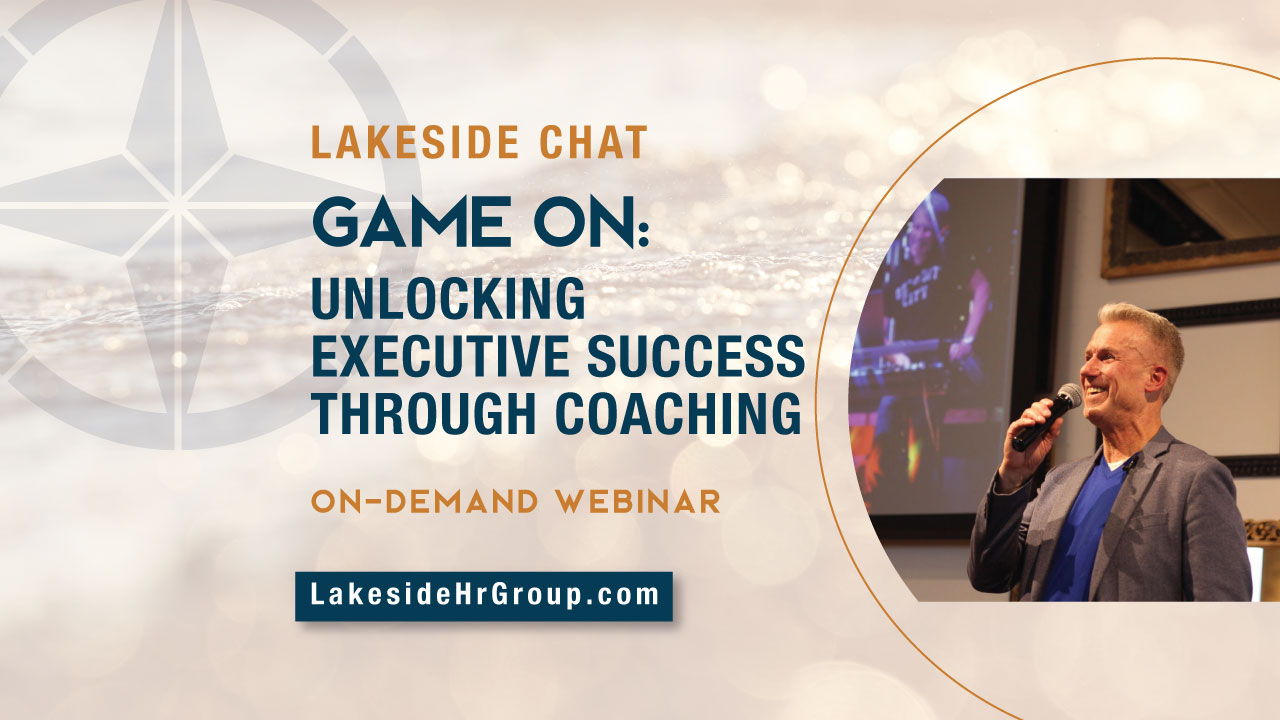Imagine it’s third down, with the home team down by two points, 30 seconds on the clock, and sitting on the 40-yard line. The team looks to their coach for guidance as they determine the correct strategy to set them up for the win.
This coach knows the team, the competition, and the stakes. They’ve spent time building skills, refining tactics, and inspiring the players to execute when it matters most.

While we may not face these kinds of high-stakes sports moments daily, leaders frequently encounter crucial decisions where they may lack familiarity or expertise. This is where executive coaching becomes a true asset. With a coach who understands your goals and your organization’s unique challenges, leaders gain invaluable support to guide them through high-pressure moments and strategic growth.
“Many CEOS and executives are resistant to hiring a coach, unable to see the value. The last 10 NFL teams that have won the Superbowl have something in common, a low player-to-coach ratio – an average of 2.5 players to coach. The quarterbacks, who are the CEOs of the team while they’re on the field, will have 4-5. Obviously, the CEOs of NFL teams know something that their business counterparts don’t, that is, the return-on-investment coaching brings.” – Glen Dall, Business Coach/Advisor, Apex North Coaching
In this blog, we’ll answer common questions about executive coaching, from what it entails to how to find the right coach, along with the organizational benefits of investing in coaching for your team:
What is Executive Coaching?
An executive coach helps individuals or businesses achieve their goals by offering guidance, accountability, and personalized strategies. They provide support in areas like leadership, decision-making, business development, and overcoming challenges.

“Coaching is always tailored around you. Trained professional coaches learn that they’re starting point is your starting point. They don’t set artificial goal-lines or expectations from themselves. They inquire powerfully, listen deeply, and work with you on your own unique playing field to get you where you want to go.” – Bethany Kurbis, Head of Product & Inclusion / Senior Executive Coach, The Bailey Group
How Do I Know When I Need an Executive Coach?
Common signs of when leaders identify needing a coach are when they are feeling overwhelmed, when they want their business to grow, and when they are struggling to put together a strategic plan.
Organizational Culture and Coaching
Executive coaching can also support your organization’s culture by aligning leadership behavior with company values. Coaches can help leaders foster innovation and drive a positive company culture that resonates throughout the organization.

Human Resources and Executive Coaching
HR professionals are in a unique position to help leaders recognize when they may benefit from executive coaching. As partners in talent development and leadership growth, HR can provide guidance on the right timing and help connect leaders with coaches that fit their specific needs.
Why is Executive Coaching Important for Organizational Success?
Simply put, executive coaching is professional development for your leaders. It is an outsourced option that organizations can provide to their leaders when the growth and guidance needed can’t be found within the organization. Providing this resource not only supports the goals of the organization, but it also has been shown to have a dramatic impact on the retention of leaders.
Stress significantly contributes to burnout and turnover among leaders. However, executive coaching can help leaders develop strategies to manage workplace stress effectively, supporting a healthy balance between life and work.
Need another business reason? American University reported that:
”Executive Coaching is a proven way to develop individual, team, and organizational performance across industries. A Metrix Global study found that executive coaching has a 788% return on investment (ROI) based on factors including increases in productivity and employee retention.”
How Do I Find an Executive Coach?
There are various professional coaching organizations to use as a starting point where coaches can be registered and their credentials are reviewed (e.g. International Coaching Federation). Additionally, leadership development programs often have coaching networks. It is encouraged that you ask colleagues, mentors, or peers in your industry for recommendations.
Much like a sports coach who guides their team to victory through preparation, strategy, and motivation, an executive coach plays a pivotal role in the success of leaders and organizations. They provide the clarity, support, and perspective needed to navigate complex challenges and make impactful decisions. An executive coach can be a game-changer.
Ready to take your leadership to the next level?
Watch our on-demand webinar Lakeside Chat – “Game On: Unlocking Executive Success Through Executive Coaching” with special guest Glen Dall, Founder and CEO of Apex North Business Coaching.
About Lakeside HR Group
We are a premier HR Consulting and Recruiting firm connecting people and businesses through personalized, full-service solutions. As a boutique firm of seasoned HR professionals, we specialize in providing customized HR services for small to midsize businesses. With expertise across diverse industries, positions, and states throughout the U.S., we partner with our clients to discover top talent and deliver the support needed to help their businesses thrive.



